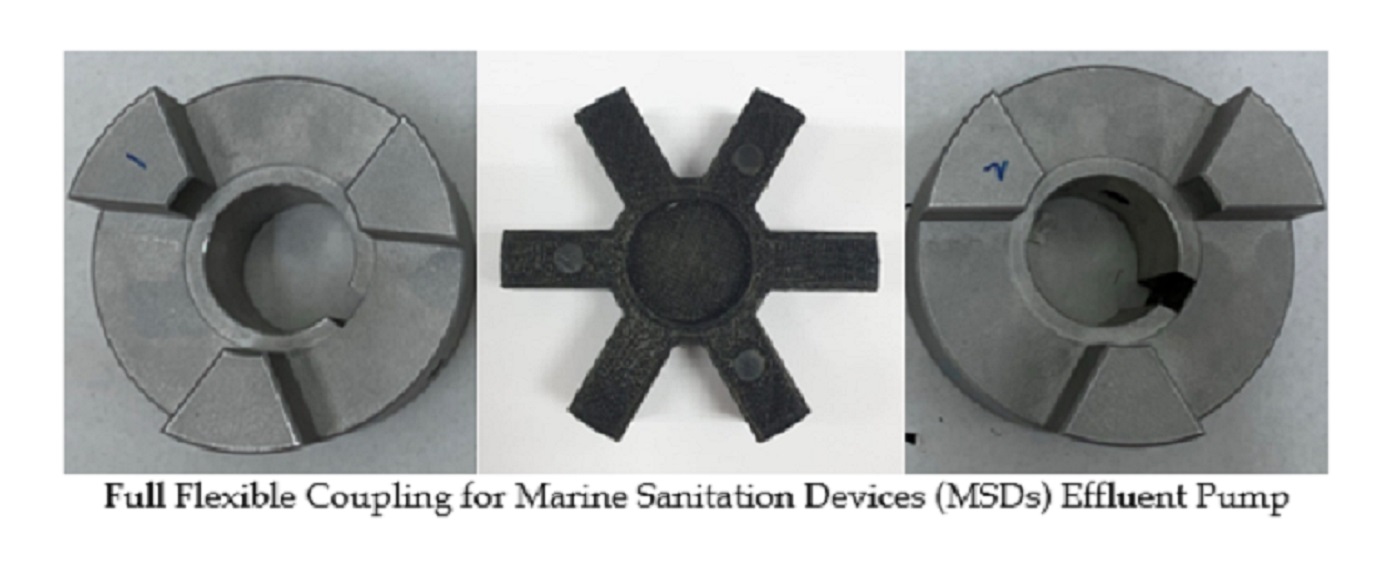Additive Manufactured Parts Installed On board an Oil Tanker Vessel
ABS, Sembcorp Marine, 3D Metalforge and ConocoPhillips Polar Tankers Inc. (Polar) have successfully fabricated, tested, and installed functional additive manufactured parts on board the oil tanker Endeavor.

Traditionally, parts used in shipbuilding and repair are manufactured via casting or forging techniques. For this project, the consortium aimed to utilize Additive Manufacturing (AM) to fabricate three types of parts that surpass conventionally manufactured products in terms of quality. These AM parts have passed rigorous approval, reliability and safety tests, and are as follows:
“ABS is proud to be able to support this practical project, which produced and implemented additive manufactured parts on a Polar vessel. It’s a key development in a technology that certainly has a significant role to play in the future of the industry. ABS is committed to ensuring these types of parts are introduced without compromising safety,” said Patrick Ryan, ABS Senior Vice President, Global Engineering and Technology.
“Safety and reliability are of the utmost importance to the operation of our vessels. Additive manufacturing has the potential to offer some exciting new opportunities to support these goals,” said Robert Noyer, Polar Tankers Engineering Superintendent.
Sembcorp Marine Head of Research & Development Mr. Simon Kuik said: “The collaboration with ABS and 3D Metalforge is a continuation of Sembcorp Marine’s drive to innovate and improve our production capacities and capabilities. This development enables Sembcorp Marine to further refine our products and deliver customized solutions safely and more efficiently.”
“3D Metalforge is extremely pleased to be supporting this program and it builds on our aim of working with leading global companies to widen and deepen the adoption of additively manufactured parts in the globally critical maritime sector,” said Matthew Waterhouse, CEO and Founder of 3D Metalforge.
Also known as 3D printing, AM is the fabrication of parts by adding material layer by layer. It means products and components can be fabricated locally or potentially on board ships and offshore assets, shrinking the supply chain and lead times for specialized and complex parts, introducing new efficiencies driven by design innovation, reduced manufacturing time, and improvements in parts availability.
ABS has been supporting the industry with the introduction of AM since 2017, when it published an Advisory that provides an overview of metal AM technologies, technical challenges and tradeoffs, changes to the design process, quality and reliability. In 2018, ABS released new Guidance Notes that establish a consistent approach for qualifying AM systems and facilities to produce parts for the marine and offshore markets. Central to this new guidance is developing a process that helps manufacturers create repeatable and reliable results. The guidance discusses three common metal additive manufacturing techniques as listed by ASTM F42: Powder Bed Fusion (PBF), Directed Energy Deposition (DED), and Binder Jetting.
Source: ABS